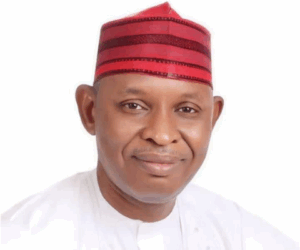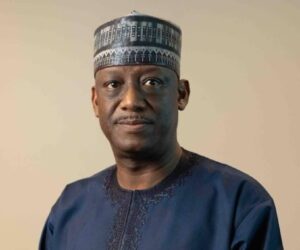President Bola Tinubu has been urged to shift Nigeria’s security approach from a military-centric strategy to one that tackles the root causes of poverty, injustice, and exclusion that continue to fuel violent conflicts across the country.
Professor Christopher Chinedumuije, Country Director of GOALPrime Organisation Nigeria and a Professor of Disaster Management and Humanitarian Studies, made the call in an open letter to the President, warning that Nigeria’s insecurity crisis cannot be solved by guns and bombs alone.
“I write once again to express a growing concern that sits at the heart of Nigeria’s struggle for peace and stability — the persistent misconception that military action is the answer to insecurity,” Chinedumuije said.
“It is regrettable that whenever the issue of insecurity arises in our national discourse, the default response is to deploy the military, as though the solution to every internal challenge is force.”
According to him, insecurity in Nigeria was “not primarily a military problem” but the cumulative outcome of years of governance failures, economic exclusion, poor social investment, weakened local institutions, and the erosion of civic trust.
Chinedumuije linked the nation’s myriad security challenges, from insurgency and banditry to militancy and separatist agitations to widespread poverty and systemic neglect.
“The insurgency in the North East, banditry in the North West, herder–farmer conflicts in the North-Central, militancy in the Niger Delta, secessionist agitations in the South East, and cultism and kidnapping in the South West all have one unifying root, injustice, poverty, and neglect,” he stated.
He cited grim statistics showing that over 63% of Nigerians are multidimensionally poor, 20 million children are out of school, and youth unemployment stands at over 42%.
“These figures represent not just numbers, but the silent army from which future insurgents, bandits, and kidnappers are drawn,” he warned.
“Poverty is the factory; insecurity is the finished product. And no nation wins the war against insecurity by merely attacking its products while leaving the factory running.”
While commending the Nigerian military for its sacrifices, Chinedumuije maintained that force alone cannot achieve sustainable peace.
“The military has fought valiantly and continues to do so. Yet, insecurity festers because guns cannot kill poverty, bombs cannot silence hunger, and bullets cannot stop desperation. The current approach treats symptoms while ignoring the source,” he said.
The academic stressed that insecurity in Nigeria must be understood within its regional contexts shaped by local deprivation, unemployment, and political exclusion.
“It must be said clearly and without diplomacy: if the underlying causes of insecurity are not addressed decisively, insecurity will continue to increase,” he said.
“Even if Mr. President changes Service Chiefs every quarter or doubles the military budget every year, the situation will only worsen. Because what Nigeria faces is not a war of weapons but a war of survival — and survival is won through development, not through defence alone.”
Chinedumuije lamented that the insecurity economy has evolved into “an industry of despair”, driven by joblessness and injustice.
“Every uneducated child is a potential weapon; every hungry family is a security threat; every ungoverned community is a breeding ground for violence,” he noted.
“The military can capture territories, but only good governance can capture hearts. Peace is not the absence of war; it is the presence of justice, opportunity, and hope.”
To address the problem sustainably, the GOALPrime director urged the Tinubu administration to “replace reaction with strategy and replace militarization with transformation.”
He proposed the adoption of a Human Security Framework that redefines national security to include food, education, health, jobs, and justice.
“Every ministry must understand that it is part of the national security architecture,” he advised.
Chinedumuije also called for the strengthening of community policing and intelligence, urging the government to build trust with local communities, traditional rulers, and vigilante networks.
“Intelligence, not intimidation, is the true power of modern defence,” he asserted.
The professor further recommended the creation of a National Livelihood and Resilience Fund targeted at at-risk youths, with provisions for vocational training, enterprise grants, and agricultural empowerment, transforming potential threats into productive citizens.
He also emphasized massive investment in education, especially the reintegration of out-of-school children and the implementation of Safe School Minimum Standards.
“Education is the most potent weapon against insecurity,” he concluded.








